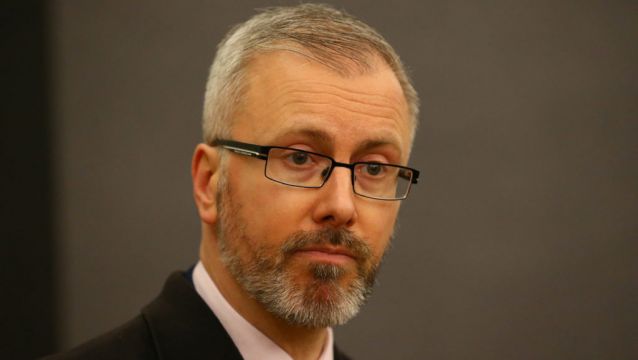There should be a legal right to two years of early childhood care and education (ECCE), the children’s minister has said.
On Thursday, Roderic O’Gorman said he wanted to ensure access to ECCE for every child in every part of the country and added that the State needs to be “taking a greater role in the actual delivery of childcare services”.
He said: “I believe there should be a legal right to the two years of ECCE for every child, that should be down there as a statutory entitlement in the same way you have a legal right to go primary school.”
The Green Party leader also expressed support for increasing pay for childcare professionals.
It comes as the Government announced that new childcare subsidy rates will reduce costs for thousands of families by almost €100 a week.
In addition, a new fee cap for childcare providers using Core Funding from the Government are to be introduced.
The minimum hourly subsidy under the National Childcare Scheme (NCS) for children under 15 will increase from €1.40 euro to €2.14 from Monday, September 2nd.
The hourly subsidy under the NCS sponsor referral programme, which makes special provisions for vulnerable children, will also increase.
For families using Tusla-registered early learning and childcare, the Department of Children and Equality said the subsidy increase could see families save up to €96.30 a week per child or more than €5,000 a year.
The subsidy increase comes as many parents are struggling with the cost of childcare or finding a place at a creche or childminder.
Meanwhile, a new fee cap for services using Core Funding for the first time will be introduced from Monday.
It sets a maximum rate of €390 per week for full-time (50 hours or more) childcare, with lower caps for differing levels of care.
The cap will initially be for new services joining Core Funding, extending to existing participants from September 2025.
That rate is yet to be determined but the goal is to bring above-average fees down towards the national average.
Elsewhere, the guaranteed minimum allocation under Core Funding has been increased to €14,000 in a bid to support smaller, rural services.
The maximum allocation has been lowered to 500,000 euro.
Early years educators have said they are struggling to keep their businesses afloat amid increasing costs and some have said they may need to increase their fees.
Elaine Dunne, of the Federation of Early Childhood Providers, said that the subsidy rate being increased is of no value to parents who cannot get a childcare place and added that there there was a staffing and funding crisis that needed to be addressed.
She told the PA news agency: “We’ve lost so many small childhood and early education providers. Parental choice is gone and waiting lists are astronomical – you cannot get a baby place nationally.
“The €2.14 universal measure should be a lot higher,” she added, “it’s no good if the places are not there, if there’s no place for a child who is then put on a waiting list for three years.
“Children have a right to be educated and children are being failed here.
“I’ve seen an awful lot of broken parents over the years struggling with mortgages and car loans and everything else.
“There has to be some leeway on the NCS where you can fill in a form if you’re over the threshold.”
She said that the Employment Wage Subsidy Scheme (EWSS) introduced during the Covid-19 pandemic illustrated how “a well-funded” early-years sector could run.
Many women opt not to return to work after having a child as the monthly cost of childcare can match their salary.
The Department said that some policy measures, such as extending the universal subsidy from all children under the age of three to all children under 15 in August 2022, and increasing the universal hourly subsidy from 50 cents to €1.40 an hour in January 2023, have made a difference to what families can afford.
It cited OECD data that it said showed improvements in affordability indicators for early learning and childcare in Ireland.
For example, in 2022, couples on the average wage spent 27 per cent of their household income on full-time early learning and childcare, while single parents on the average wage spent 17 per cent of their household income on full-time early learning and childcare.
In 2023, this figure fell to 17 per cent and seven per cent respectively.
In 2022, couples on the minimum wage spent 24 per cent of their household income on full-time early learning and childcare while single parents on the minimum wage spent four per cent of their household income on full-time early learning and childcare.
In 2023, this figure fell to 12 per cent and zero per cent respectively.
A total of 175,389 children have benefitted from an NCS subsidy so far this year, the Department said.







